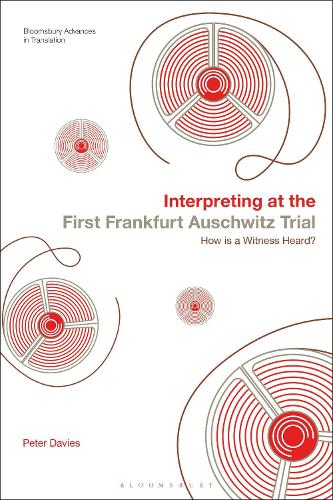
Interpreting at the First Frankfurt Auschwitz Trial: How is a Witness Heard
(Hardback)
Publishing Details
Interpreting at the First Frankfurt Auschwitz Trial: How is a Witness Heard
By (Author) Dr Peter Davies
Bloomsbury Publishing PLC
Bloomsbury Academic
12th June 2025
United Kingdom
Classifications
Professional and Scholarly
Non Fiction
The Holocaust
Legal systems: courts and procedures
345.430238
Physical Properties
Hardback
312
Width 162mm, Height 238mm, Spine 24mm
620g
Description
This book explores the work of interpreters and translators at the First Frankfurt Auschwitz Trial of 22 former SS Auschwitz personnel in the mid-1960s, when the voices of dozens of witnesses, speaking 10 different languages, had a profound impact on public understanding of the Holocaust in Germany and beyond.
The book asks vital questions about how victims of genocide can make their voices heard in legal systems, and the processes by which the testimony of Holocaust survivors has entered the public record. The author discusses interpreters professional practice and ethical self-understanding in the unequal linguistic and institutional structures of the courtroom, and shows how translation and interpreting affected the way victims voices were heard.
The survivors came from many different national, linguistic and cultural backgrounds, and their testimonies are often multilingual or hybrid, providing illuminating insights into the significance of the language(s) in which testimony is given, but presenting interpreters with linguistic and ethical challenges.
The preserved audio recordings of courtroom testimony show that interpreters and translators played a key role not only in attaining justice but also in helping to shape the ways in which victim testimony was given, heard, understood and valued within and beyond the courtroom. The author considers how trust is established, developed, challenged and lost, and how this affects the ability of Auschwitz survivors to give testimony in a complex and emotionally demanding situation. In doing so, he also explores the contribution of interpreting and translation to the developing memory of the Holocaust in the 1960s and to the public image of the survivor-witness.
Author Bio
Peter Davies is Professor of Modern German Studies at the University of Edinburgh, UK.
